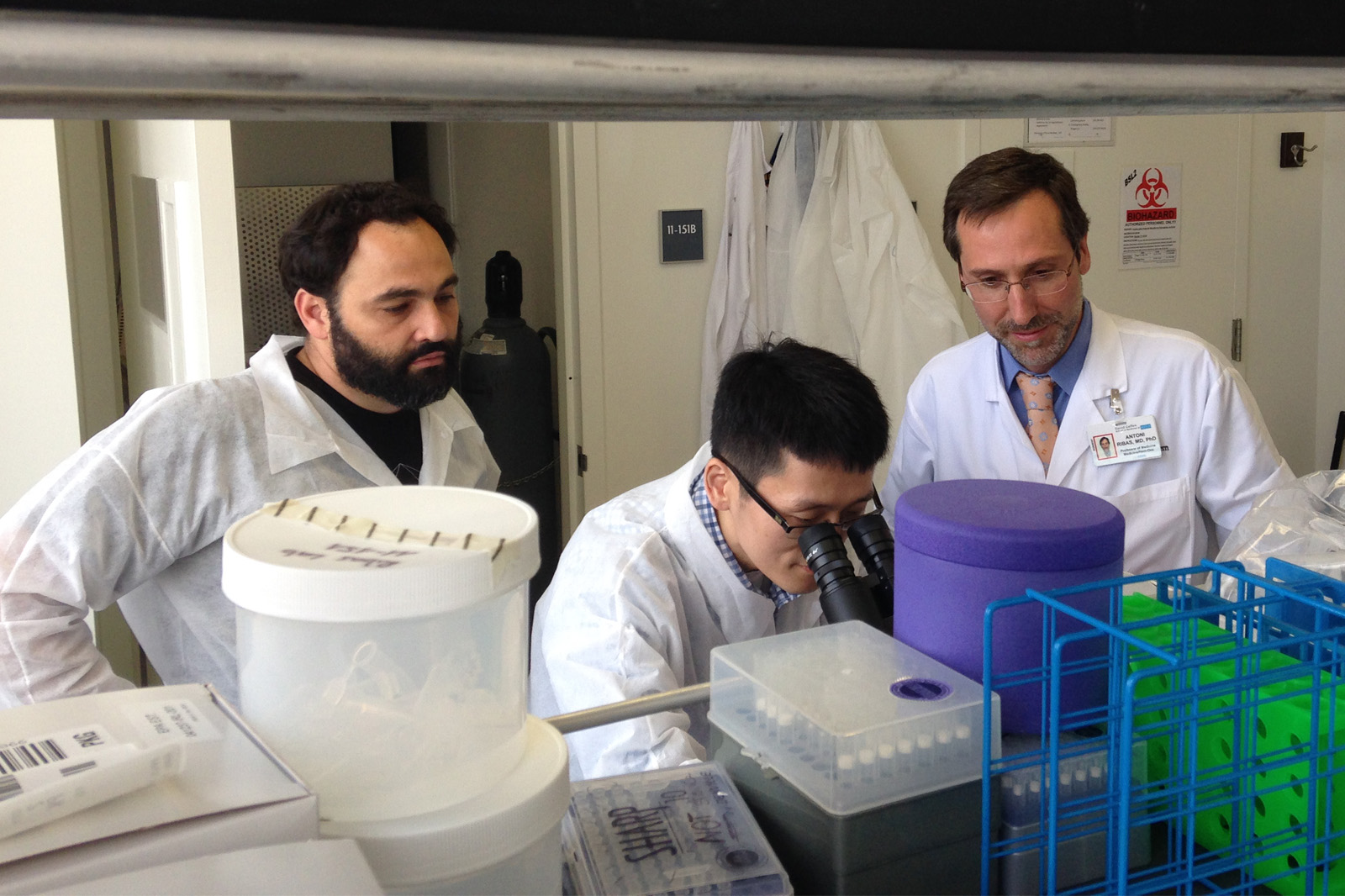UCLA researchers explore treatment for unresponsive skin cancer

UCLA Jonnson Comprehensive Cancer Center researchers are developing alternative treatments for patients with genetic mutations that do not respond to current immunotherapies for their cancers. (Courtesy of Antoni Ribas)
By Avvalzameer Bhatia
Feb. 14, 2017 12:22 a.m.
A drug previously found to successfully treat several types of skin cancers is actually not effective for people with certain skin cancers, UCLA researchers found last week.
In November, scientists from the UCLA Jonsson Comprehensive Cancer Center discovered that the immunotherapy drug pembrolizumab, which was initially used as a treatment for lung cancer, was also effective in treating skin cancer.
Following the discovery, however, researchers continued to study the effects of the drug on cancer patients, and found that pembrolizumab is not effective for people with cancers containing JAK1 and JAK2 genetic mutations.
Antoni Ribas, a hematology oncology doctor and the lead scientist of the study, said the drug does not work because the genetic mutations block pembrolizumab, which typically facilitates T-cell signals, from the tumor.
[Related: Lung cancer treatment receives FDA approval following UCLA trials]
“We have a new generation of immunotherapy that allows the immune system to attack the cancer,” Ribas said. “But we learned that there are proteins called PD-1 and PD-L1 that block the immune system from attacking the cancer.”
The researchers found out that the drug was ineffective for some patients by taking biopsies of tumors in the patients and conducting exome sequencing, a kind of human genome project. This allowed them to compare cancer cells to the patient’s healthy cells. The team then tested the role of PD-1 and PD-L1 proteins in the cancerous cell lines, Ribas said.
Researchers are planning to come up with a new treatment for patients with unresponsive cancers. They have started testing JAK1 and JAK2 human genetic mutations in mice using a technology called Clustered Regularly Interspaced Short Palindromic Repeats, and then developing potential treatments for people with those genetic mutations.
CRISPR technology allows researchers to edit genomes, compare healthy cells to the cancerous cells and test combination immunotherapies. Experts at the Ronald Reagan UCLA Medical Center believe the technology can bypass unresponsive cancer mutations.
The researchers also said they are confident about the future of immunology and cancer-related research.
“I went from seeing one in 20 patients recover, to now seeing one in three of my patients living a normal life,” Ribas said. “This progress has taken place because we understood the science and applied the right drug. So, the better we understand the science, the better we’ll be able to treat the cancer.”


